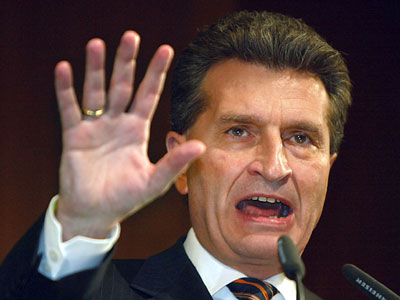Nasen
Da heute schon zu viel Spam geflossen ist, muss ich meine verbale Inkontinenz anders ausleben. Kaum zu glauben, aber wahr - ein Blog von mir. Ich werde aber kein Tagebuch schreiben. Das hier soll lediglich ein Ersatz für unpersönliche Mails sein.
Über was ich eigentlich schreiben wollte ist -
ein von mir soeben erkannter, bisher unerklärlicherweise noch nicht prominent aufgezeigter Zusammenhang, eine Ähnlichkeit:


Vielleicht muss A. M. doch nicht, wie von mir bereits vorgeschlagen, exportiert werden, um unsere welschen Nachbarn zu retten?!
Das war auch schon alles. Sobald mich wieder die Blog-Muse küsst, werde ich weiterarbeiten. Aber das wird kein echtes Blog!
Noch ein Link zum Thema (Günther O. wird leider nicht erwähnt, aber es kann ja nicht jeder Schreiber so am Puls der Zeit sein wie ich) :
">http://www.nytimes.com/2006/03/28/international/europe/28france.html?ex=1144213200&en=26acf90c68bd0ad9&ei=5070&emc=eta1">
Über was ich eigentlich schreiben wollte ist -
ein von mir soeben erkannter, bisher unerklärlicherweise noch nicht prominent aufgezeigter Zusammenhang, eine Ähnlichkeit:


Vielleicht muss A. M. doch nicht, wie von mir bereits vorgeschlagen, exportiert werden, um unsere welschen Nachbarn zu retten?!
Das war auch schon alles. Sobald mich wieder die Blog-Muse küsst, werde ich weiterarbeiten. Aber das wird kein echtes Blog!
Noch ein Link zum Thema (Günther O. wird leider nicht erwähnt, aber es kann ja nicht jeder Schreiber so am Puls der Zeit sein wie ich) :
">http://www.nytimes.com/2006/03/28/international/europe/28france.html?ex=1144213200&en=26acf90c68bd0ad9&ei=5070&emc=eta1">
tillalb - 28. Mär, 20:53

R-Nase vs D-Nase
sind sie d'accord, t-ill?
Herzlich willkommen auch! Da hätte ich doch fast vergessen, meinen ersten Kontributeur ehrenvoll zu begrüßen...